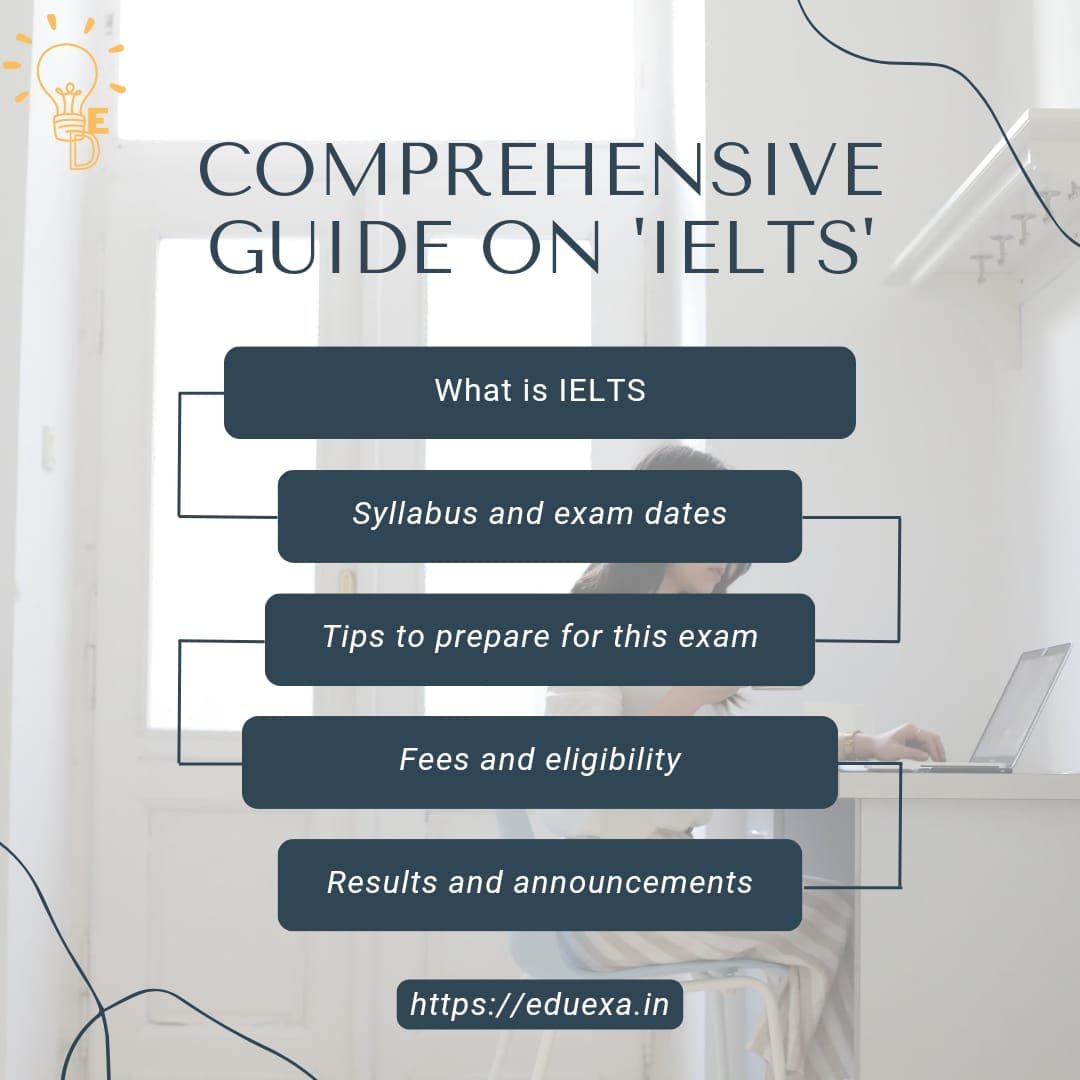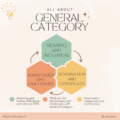IELTS full form | What is IELTS : A Complete Guide in 2024
What is IELTS full form?
IELTS full form is International English Language Testing System (IELTS) is a set of tests meant to assist you in working, studying, or migrating to a country where English is the primary language. This covers Australia, Canada, New Zealand, the United Kingdom, and the United States.
IDP Education Australia and Cambridge English Language Assessment jointly own and administer the IELTS exam.
The exam primarily assesses test takers’ ability to communicate in four core English language skills:
- listening
- reading
- speaking
- writing
The British Council, IDP: IELTS Australia, and Cambridge Assessment English jointly run the International English Language Testing System, or IELTS. Its main goal is to assess the English language proficiency of persons who want to work or study in countries where English is the primary language. IELTS has become one of the most popular English language assessment examinations taken by study abroad hopefuls as the number of persons pursuing higher education abroad has increased in recent years.
Why is IELTS required?
The foreign institutions and immigration authorities want to be certain of your communication abilities while in the nation. Your total IELTS band scores are critical because they demonstrate that you have an excellent command of the English language. Following are the reasons :
Objective assessment of your English language skills
An IELTS test measures your proficiency in English as a foreign language according to the most rigorous international IELTS standards.
A globally recognised certification
An IELTS score is accepted by thousands of organisations around the world, including companies, colleges, professional associations, and government agencies.
Improves English language proficiency
When you take the IELTS exam, you will be evaluated in all four abilities, which are listening, reading, writing, and speaking. As a result, you must practise all four abilities if you want to do well on the exam.
Deeper knowledge of the English language
You will have a better comprehension of the language necessary for undergraduate or postgraduate courses in English if you take the IELTS Academic test.
Motivation with a clear goal
It’s easy to put off studying for another day if you don’t have clear goals and objectives. Taking an IELTS exam encourages you to work hard in class and improve your English. It is also essential for job opportunities as well as integration into the community.
Why is the IELTS score important for admissions?
IELTS results are used by foreign universities, both undergraduate and postgraduate, as well as professional universities, to determine whether a student is capable of keeping up with the program’s medium of instruction, which is English.
IELTS scores are required for courses delivered in English in many non-English speaking countries. Universities typically set minimal IELTS requirements that applicants must meet in order to be considered for admission. As a result, a student with an ideal IELTS score equal to or greater than the minimum criterion will have a better chance of getting into university than a student with a score below the minimum criteria. Admissions would be denied even if one’s band score fell short of the minimum threshold by 0.5.
As a result, a student seeking admission to the university of his or her choice should examine the minimum IELTS score required for admission and strive to achieve an IELTS score equal to or greater than the minimal score. From the perspective of a student, IELTS preparation will assist them in improving their English language skills and, as a result, acing the chosen programme effectively. Getting a good grade will boost a student’s confidence by ensuring that he or she will be able to complete the courses without any linguistic barriers.
Why is the IELTS score important for employment?
Providing evidence of your language skills is a significant step toward obtaining a visa that will allow you to begin working in another country. Language skills are regarded as a valuable asset and are one of the most important conditions for career success. If you’re seeking a work visa, you’ll need to demonstrate either ‘vocational’ or ‘competent’ English language abilities, which means you’ll need more than basic conversational English.
What is Digital Marketing Course, A Complete Guide
Why is the IELTS score important for Immigration?
The IELTS test is used by government offices as part of their application processes for permanent residence or citizenship. They look at how language skills are linked to people’s capacity to integrate into society and the workplace. Many people ask whether IELTS is required for immigration. Immigration authorities trust the IELTS test, and it plays a critical role in employing language evaluation as a tool for managing migration rates.
The Secure English Language Test (SELT) has been approved by the UK government as part of the visa application process. IELTS Life Skills or ‘IELTS for UKVI’ is the name of the exam. IELTS can be used to confirm your English language proficiency in support of a UK Visa and Immigration (UKVI) application. You must demonstrate your listening and speaking skills in the IELTS Life Skills test. At the completion of the exam, you will be given a pass or fail grade.
How is the IELTS score calculated?
There are two sorts of IELTS scores: the overall band score and the individual band score for each section. The Overall Band Score is the average of all the sectional band scores, and sectional band scores are the results received by a test-taker in each segment. Both overall and sectional scores are graded on a scale of 0 to 9. Scores for the entire band are always rounded to the next half or whole band. An average of 6.25, for example, will be rounded to 6.5. Half-point results, such as 6.5, are achievable for band scores.
UR Category: A complete guide.
To break it down even more, you’ll receive a ‘raw score’ for each test, which is calculated by converting the number of correct answers into band scores. The overall score, often known as the “composite” score, is the sum of your separate IELTS scores and is intended to reflect your overall English proficiency. For example, if you earn 3.5 on the listening test, 4.5 on the reading test, 6 on the writing test, and 6.5 on the speaking test, divide all of these scores by 4 to get the average, which is 5.125. After rounding off, your overall IELTS band score is 5.0.
IELTS also outlines the degree of performance for each band score in the table below in the form of band score descriptions:
| IELTS Band Score | Skill Level |
| 9 | Expert |
| 8 | Very good |
| 7 | Good |
| 6 | Competent |
| 5 | Modest |
| 4 | Limited |
| 3 | Extremely Limited |
| 2 | Intermittent |
| 1 | Did Not Attempt the Test |
IELTS Eligibility
IELTS is open to anybody regardless of age, gender, colour, nationality, or religion; however, it is not suggested for individuals under the age of 16 years.
Minimum Age Requirement
Although the IELTS administrators (IDP or British Council) do not establish an age cap, candidates under the age of 16 are not advised to take the test. Although they may also take the test if they wish.
Educational Qualification
There is no set of IELTS eligibility criteria established by the IDP, the IELTS organising authority. Anyone interested in pursuing higher education or employment overseas may take the IELTS IDP exam (both Academic and General Training). Candidates should, however, carefully verify their eligibility against the criteria established by the educational institution or organisation to which they are applying.
Complete guide on MBA Course.
Types of IELTS Exam
Academic and General Training IELTS examinations are the two types of IELTS examinations offered. While the listening and speaking portions of both examinations are identical, the writing and reading sections vary according to which test is taken. The IELTS Reading, Writing, and Listening sections are all administered on the same day of the exam, with no breaks. On the other hand, the Speaking component may be administered a week before or after the other examinations. This information exam is offered at your testing location.
IELTS Academic Test
IELTS Academic determines whether your English language proficiency is appropriate for an academic setting. It incorporates elements of academic language and assesses your readiness to begin training or studying.
You may take the test if you wish to study at an undergraduate or postgraduate level anywhere in the world, submit an application for a Student Route visa (Tier 4) at a university in the United Kingdom or work for a professional organisation in an English-speaking country.
IELTS General Test
IELTS General Test is taken by those who wish to migrate to major English-speaking countries like Canada, Australia, and the UK. This test is also taken by those who want to enrol in training programmes or secondary education or want to gain work experience in a country where English is the main language used for communication.
You may take this test if you wish to study or train below degree level, undertake work in a natively English speaking nation or immigrate to an English speaking nation.
IELTS Indicator
IELTS Indicator is a new online assessment tool that you can use to determine your English language proficiency and stay on track with your educational goals during the Covid-19 shutdown.
IELTS Test format
The Academic and General Training IELTS tests differ in two of the test’s four sections: Reading and Writing. Both versions have identical Listening and Speaking sections.
Reading Section
The Reading section of the IELTS Academic exam requires you to read three longer and more complex texts, as opposed to the four or five shorter and simpler texts required for the General Training exam.
Writing Section
The Academic test’s Writing section will present you with a chart or diagram that you must describe in 150 words. You will be given a description of a real-life situation to describe in a written letter during the General Training test. IELTS examiners will focus on three critical areas: structure (the essay must contain at least three paragraphs), vocabulary (it is critical to include several ‘higher register’ words in addition to common conversational terms), and fluency (commonly used phrases).
Speaking Section
The Speaking section is divided into three sections and typically lasts between 11 and 14 minutes. Each candidate has a one-on-one conversation with a single examiner, which is taped.
Listening Section
The section on Listening is divided into four sections. You’ll hear audio clips of people discussing various topics. Following that, you will be required to respond to questions about what you have heard.
The same four criteria (task response, cohesion and coherence, vocabulary, and grammar) are used to grade both versions of the exam, ensuring that your English language skills are assessed as accurately as possible.
IELTS Registration
Keep your passport handy during registration as you will require your passport number. Apart from that, you must bring your passport with you on the day of the test. The process of registering for the IELTS exam is quite simple:
- You must first visit the British Council’s official registration page.
- Create a British Council account.
- Locate the testing centre that is closest to you.
- Register and pay for the IELTS test online.
Those under the age of 18 must have their parents or guardians book the test on their behalf. Once you have registered for the IELTS exam, your test centre will send you a written confirmation confirming the date and time of your IELTS test.
IELTS Exam Fee
The registration fee for IELTS is Rs. 14,700 from July, 2021.
IELTS Cancellation Fee
- You will receive a refund less a 25% administrative fee if you cancel your IELTS application more than five weeks before the test date.
- You will not receive a refund if you cancel the IELTS exam less than five weeks before the test date.
- If you do not appear for the test, you will also not receive a refund. This is also referred to as a cancellation.
- Those who can produce a medical certificate within five days of the test date can receive a refund after deducting the local administrative costs.
IELTS Rescheduled Examination Fee
If you wish to change your test date, you may request a test day transfer at least five weeks prior to your scheduled test date, less your cancellation/postponement fee. Additionally, ensure that the new test date is no more than three months from the original test date. For the transfer of the test date, candidates must pay an administrative fee of INR 3,300 inclusive of all taxes.
IELTS scholarships
One of the most significant disadvantages of studying abroad is having to pay tuition in foreign currency in addition to high living expenses. Due to these factors, many sections of students are unable to study abroad and must settle for other options. However, with the availability of numerous IELTS Scholarships and educational loans, students can finally fulfil their dreams. Scholarships are listed on each college’s official website, along with other fellowships and grants that are regularly awarded to deserving students. Additionally, students can obtain education loans from financial institutions to fund their studies abroad.
IELTS exam Syllabus
| Section | Number of Questions & Duration | Content | Marks |
|---|---|---|---|
| Listening | 4 Recordings 40 Questions30 Minutes + 10 minutes transfer time | Four recorded monologues and conversations | 1 mark per question |
| Reading | 40 Questions 60 minutes | 3 Passages (can be descriptive, analytical, factual or discursive) | 1 mark per question |
| Writing | 2 Questions 60 minutes | Writing task (minimum 150 words) Essay (minimum 250 words) | Each task is assessed independently. The assessment of Task 2 carries more weight in marking than Task 1. |
| Speaking | 3 Questions 11-14 minutes | Part 1: Q&A Part 2: Speaking in detail on a familiar topic Part 3: Structure Discussion |
Section-wise Tips and Tricks for IELTS Exam
To achieve a good overall band score on the IELTS, candidates must also score well in each of the sections. Each section has its own assessment criteria and thus requires its own preparation and approach. The following are some section-by-section tips that candidates should follow in order to ace all sections.
Speaking Section:
- Keep your responses clear and concise.
- On the day of the test, students will be asked random questions. Thus, rather than memorising speeches or lines, candidates should focus their preparation on practising speaking tests and honing their ability to speak eloquently and coherently.
- Make sure you have cleared up any confusion before answering any question
- Candidates are advised to communicate with peers in English on a daily basis in order to improve their command of the language for the speaking test.
Reading Section:
It is critical to allocate time wisely between all questions. Candidates will have 60 minutes to respond to 40 questions, at a rate of one and a half minutes per question. However, more time should be spent on lengthy passages and less time on simpler and shorter questions. Thus, a candidate must consider these factors when devising and executing a sound strategy for completing the paper on time while maintaining the accuracy of the answers.
Writing Section:
- It is far more important to organise one’s thoughts and strategies in advance of diving into writing tasks than it is to dive into them immediately.
- Revising is also critical, and candidates are advised to set aside some time at the end to proofread their responses.
Listening Section:
- Candidates are advised to read the entire question rather than focusing exclusively on key points or keywords.
- One must properly listen to the question rather than constantly writing.
IELTS Exam Result
After you’ve completed the IELTS, you’ll need to wait for the results. The advantage of these exams is that results are typically available within a fortnight. If you took the computer-based exam, your results will be available within 3-5 days or within a week in this case.
Offline Mode
If you take an exam offline or on paper, you will receive your results within 13 calendar days of the exam date.
Online Mode
Candidates will receive the results of computer-delivered tests within 3-5 days of submitting their application. On the day of your result, your Test Centre will notify you of the results. To view your result, simply log in using your ID, password, passport number, and test date information. Your results will be available online for the next 28 days from the time they are declared.
IELTS exam Centres
IELTS has its exam centres all over India. You can take the exam at 78 locations across India. It’s important to pick an ideal location for the exam so that you don’t have to deal with a long commute on exam day. Choose an IELTS centre that requires little commuting time so that you can concentrate on the exam. With so many locations, it should be simple to locate a test centre close to your residence. Remember, you need to book the IELTS centre in advance according to your suitable time. You can check the test centres on their official website.
Frequently Asked Questions(FAQs)
- What is the objective of the IELTS examination?
Ans: The IELTS exam measures a test taker’s ability to communicate effectively in English across four critical language skills – reading, writing, speaking, and listening. It is necessary to seek employment or advance your career in native English-speaking countries such as the United Kingdom, the United States of America, New Zealand, Australia, and Ireland, among others.
- How long is my IELTS result valid?
Ans: Two years is the validity period for an IELTS test report form.
- How many IELTS test attempts are permitted?
Ans: There are no age restrictions imposed by IELTS’s administering bodies for taking the exam. You may retake the IELTS test as often as necessary until you achieve your desired/target score. You must, however, pay the IELTS test fee for each attempt.
- How frequently is the IELTS exam administered in a given year?
Ans: The IELTS exam is not scheduled in a set number of sessions. It is administered several times a year to give candidates the option of selecting a date and taking the test whenever they are ready. Additionally, there is no limit to the number of times you may attempt or retake the exam. You simply need to pay the exam retake fee and retake the exam as often as you like (given that you have to pay the fees for every attempt).
- Who administers IELTS?
Ans: IDP IELTS Australia (International Development Program) and Cambridge ESOL own the IELTS test (English for Speakers of Other Languages). Previously, IDP and British Council jointly administered IELTS in India; however, IDP has acquired a 100% stake in British Council and will now be solely responsible for administering IELTS in India, whether computer-based or paper-based.




Pingback: How to Find the Motivation to Study? | Eduexa